2025.05.20
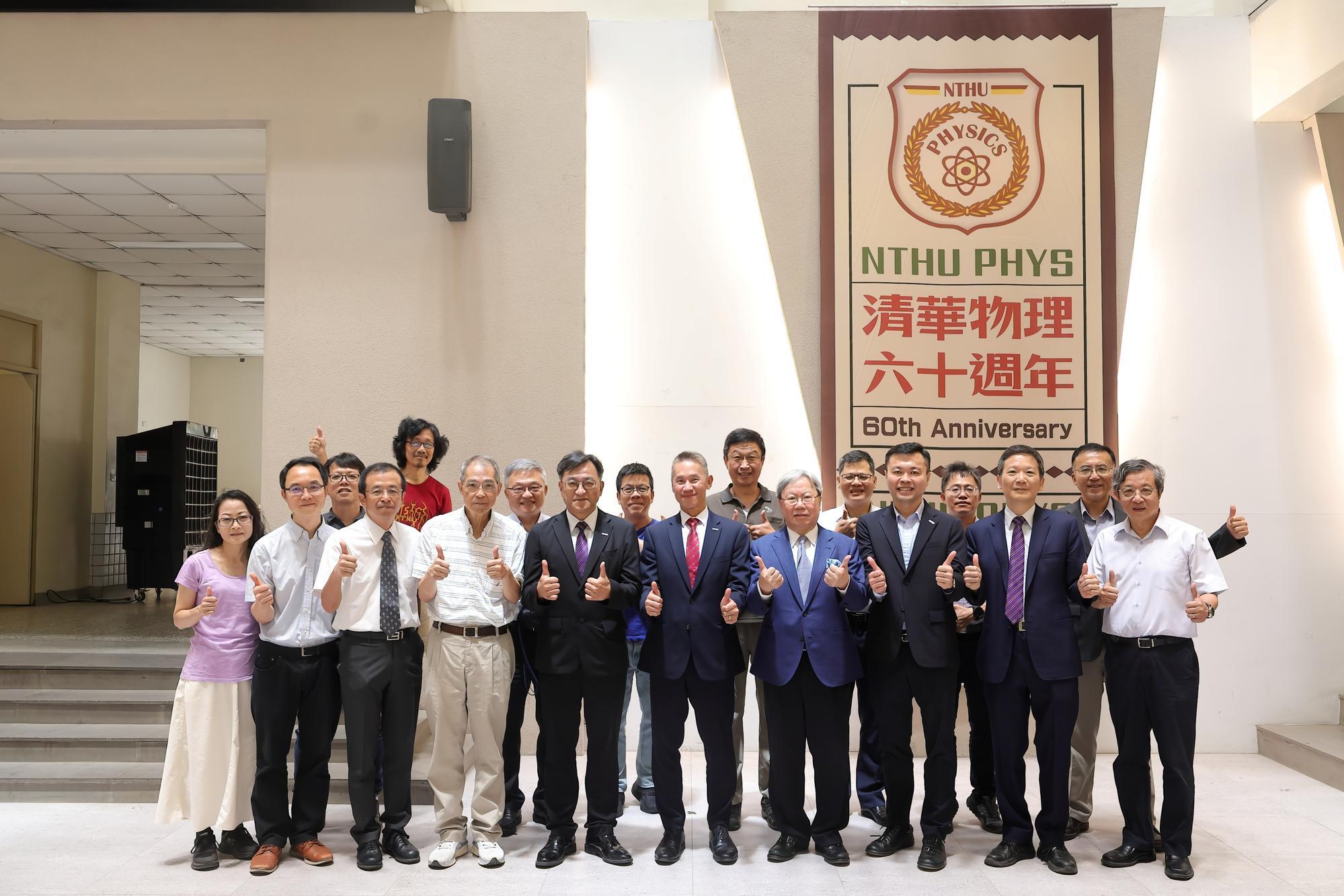
NTHU's Excellence in Physics Development Fund was officially established with a ceremony held on May 20.
Alumnus Hung-Liang Hsieh (謝宏亮), who graduated from the Department of Physics and is now chairman of the Scientech company, has recently donated NT$100 million to establish the Excellence in Physics Development Fund at National Tsing Hua University (NTHU) in Taiwan. The fund will support the department's development, academic research, and international collaboration, with the aim of boosting its global standing.
The Fund will be used to support the Department of Physics' Outstanding Talent and New Horizons programs, sponsor teachers and students going abroad for exchange programs, develop multinational research teams, and expand the international visibility of the Department of Physics.
The signing ceremony for the Excellence in Physics Development Fund was held at the Department of Physics, with NTHU president W. John Kao (高為元) accepting the donation on behalf of the university and thanking Hsieh for his generous support.
Kao said that the Department of Physics, which recently celebrated its 60th anniversary, has had a profound impact in Taiwan, and that the new Fund will help it become even better.
In the 2025 the QS World University Rankings, NTHU was ranked 85th in physics and astronomy. It was also ranked highly in fields such as quantum optics, semiconductors and quantum technology. Hsieh expects that with the support of the new Fund the Department of Physics will soon rank even higher.
Hsieh graduated from the Department of Physics in 1973 and was the first recipient of the Outstanding Alumni Award from the College of Science. He expects that the Fund will help NTHU to build on its existing strengths and distinctive characteristics, and that it will enable the department to augment its resources and enhance its competitiveness.
“Although it is just a drop in the bucket, I hope that this fund will encourage more alumni to donate to their respective departments, so as to enhance their competitiveness,” Hsieh noted. He also called on alumni to defend academic independence and freedom from political interference.
College of Science dean Chung-Yu Mou (牟中瑜) said that having strong international connections is one of the key indicators used in the ranking of universities, so much of the new fund will be used to strengthen international cooperation and improve paper citation rates.
Mou emphasized that international ranking is an important factor taken into account by students applying to study abroad, and that NTHU is currently ranked in the top 100 in several fields. He hopes to see additional alumni contributions that can be used to further improve the school's ranking.
Department of Physics director Yi- Wei Liu (劉怡維) explained that the fund will be divided into two parts. First, over the next ten years, the Outstanding Talent Program will allocate NT$3 million each year to send three professors abroad for six months to one year; and second, another NT$1 million will be used to supplement the salaries and improve the teamwork of young National Science Council researchers working in the department.
In the New Horizons Project, NT$6.1 million will be allocated each year (including school subsidies) to offer all doctoral students in physics NT$300,000 to NT$500,000 to conduct 6- to 12-month research visits to leading international institutions.
Liu said that the overall plan is to use international exchanges of faculty and students to engage in cutting-edge research and develop long-term partnerships with top academic institutions abroad.
Associate Professor Shih-Kuang Tung (童世光) of the Department of Physics said that compared with short-term visits, a stay of six months to a year leads to deeper cooperation, but the high cost can be an obstacle. However, “This fund will allow scholars to engage in international exchanges without having to worry about how to pay for it.”
“Physics is essentially a cross-border and cross-disciplinary field. This fund is like a seed ready to sprout, but it's impossible to predict what kind of tree it will grow into and what kind of fruit it will bear,” said Tung.
Yun-Zheng Lin (林芸箏), a junior in the Department of Physics' Astronomy Group and president of the department's student association, said that astronomical research requires visiting overseas observatories; however, financial constraints make this difficult for many students, “So this new fund will make a big difference.”
Hung-Yueh Huang (黃弘岳), a junior in the optoelectronics group, said that interacting with international academic teams provides new perspectives on research, and that “establishing this new fund definitely strengthens my determination to pursue further studies in physics.”
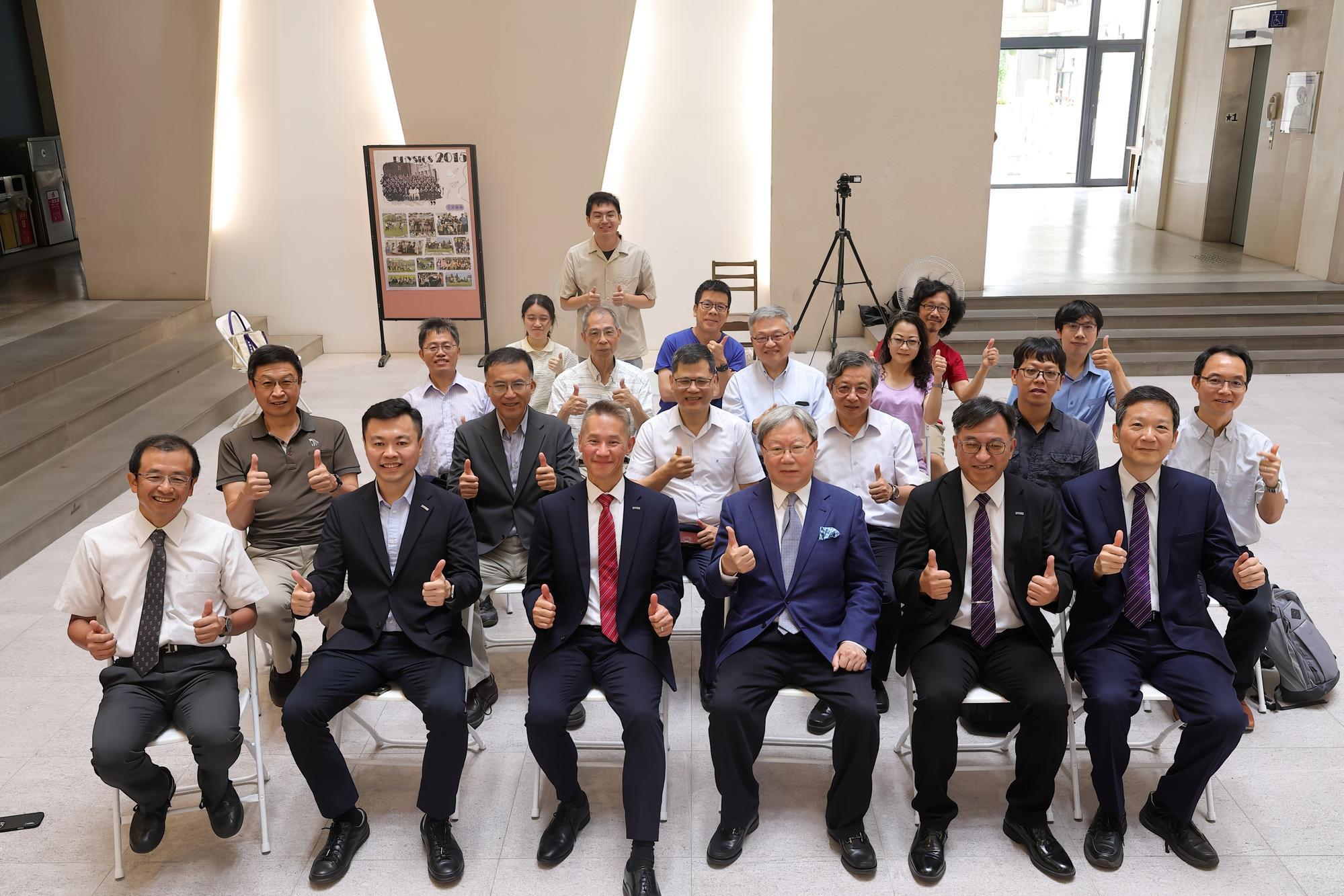
NTHU's Excellence in Physics Development Fund was officially established with a ceremony held on May 20.
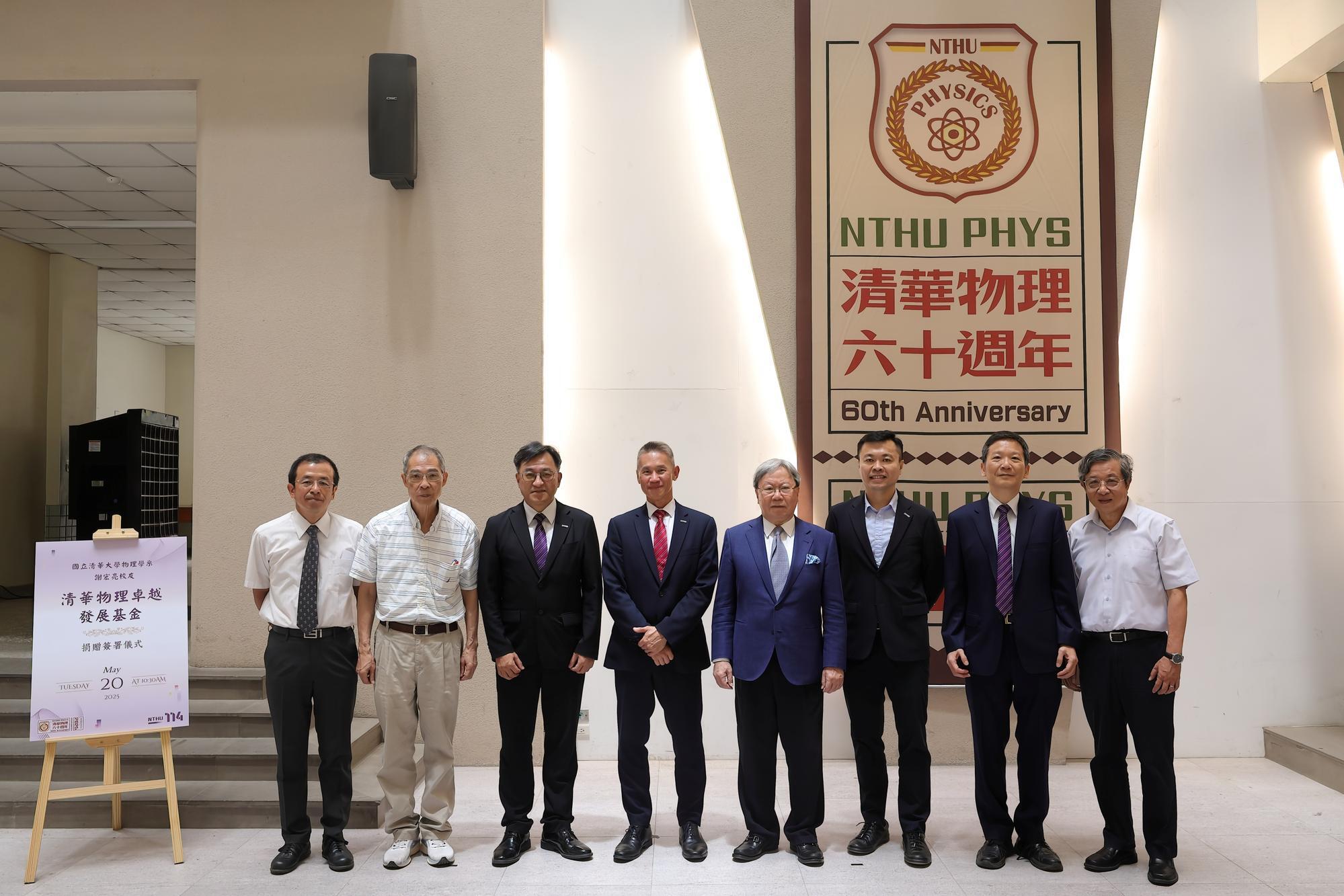
At the ceremony (left to right): Department of Physics director Yi-Wei Liu (劉怡維), Professor Jow-Tsong Shy (施宙聰) of the Department of Physics, senior vice president Hsiang-Kuang Chang (張祥光), president W. John Kao (高為元), alumnus Hung-Liang Hsieh (謝宏亮), deputy vice president for alumni service and resource development Ming-Yen Lu (呂明諺), College of Science dean Chung-Yu Mou (牟中瑜), and alumnus SC Hsin (辛水泉).
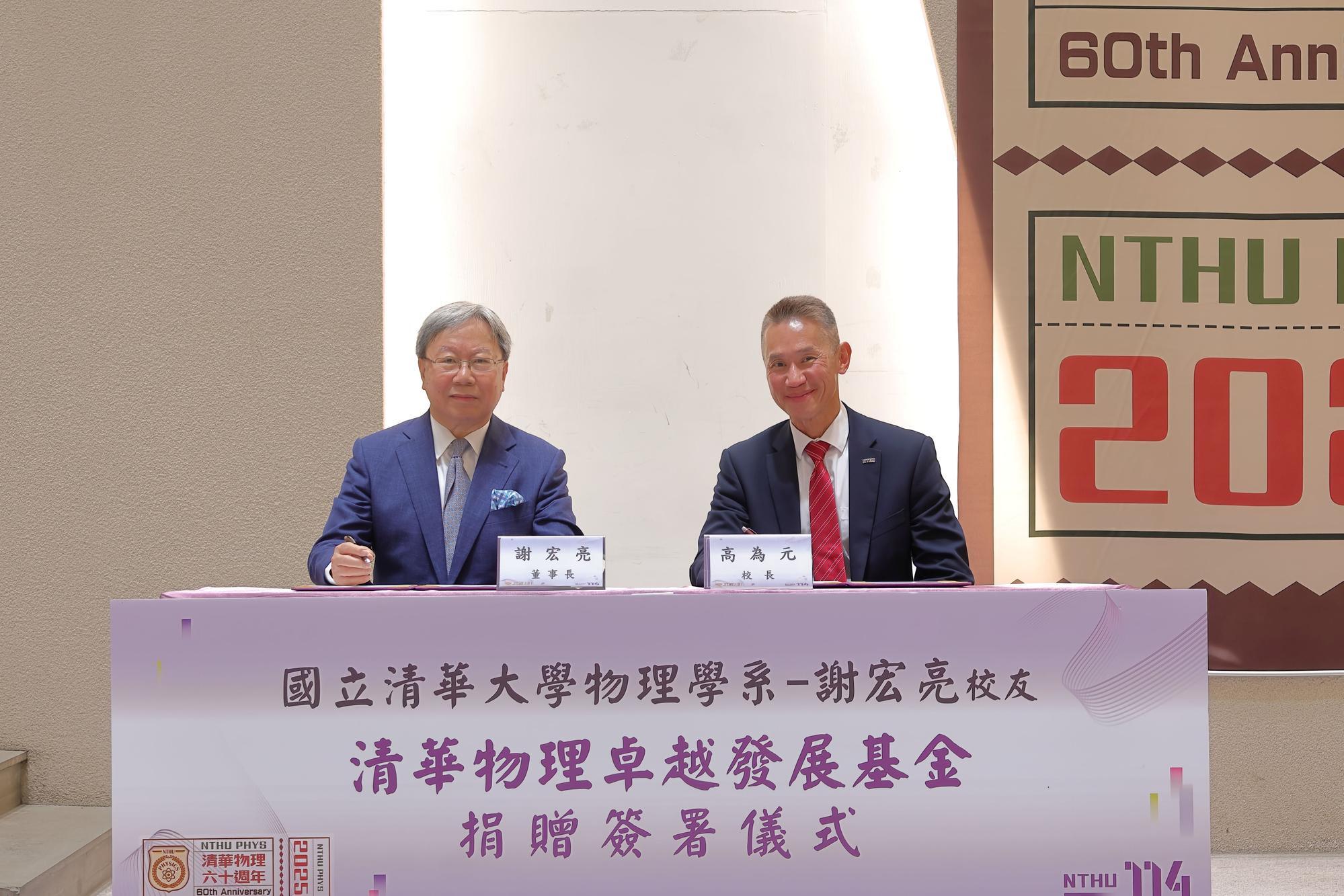
Representing NTHU, Kao (right) received a donation of NT$100 million from Hung-Liang Hsieh to establish the Excellence in Physics Development Fund.
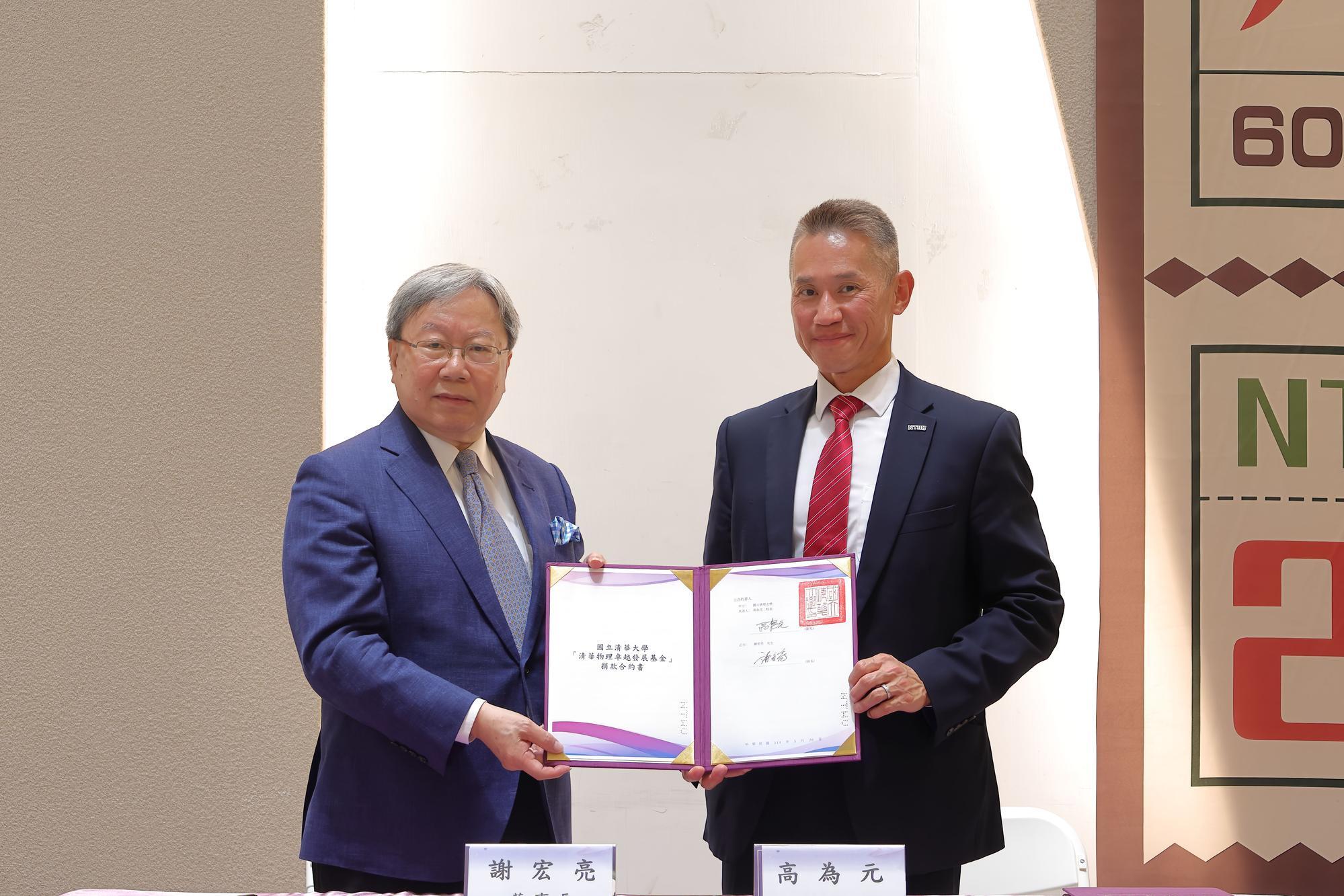
Representing NTHU, Kao (right) received a donation of NT$100 million from Hung-Liang Hsieh to establish the Excellence in Physics Development Fund.
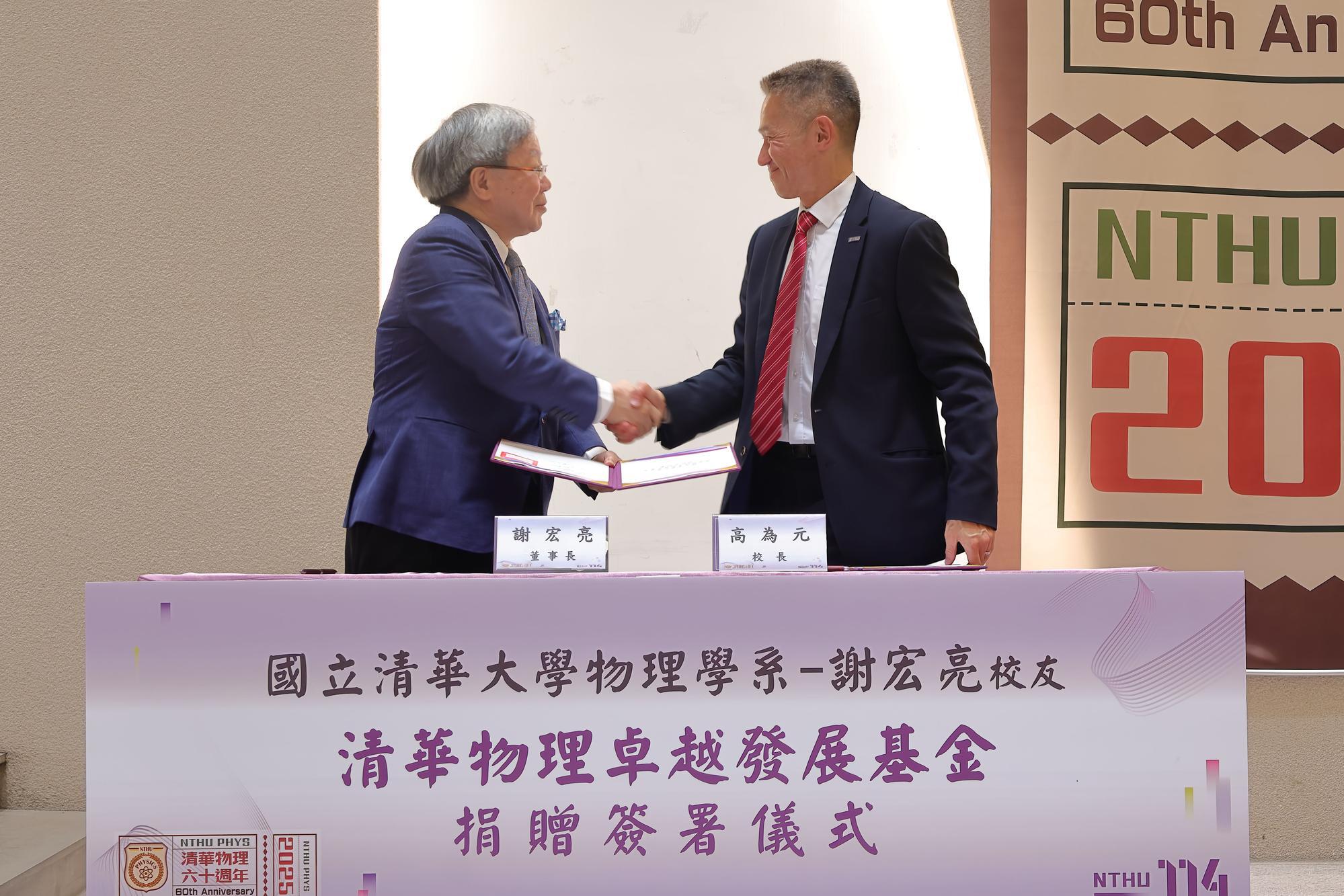
Representing NTHU, Kao (right) received a donation of NT$100 million from Hung-Liang Hsieh to establish the Excellence in Physics Development Fund.
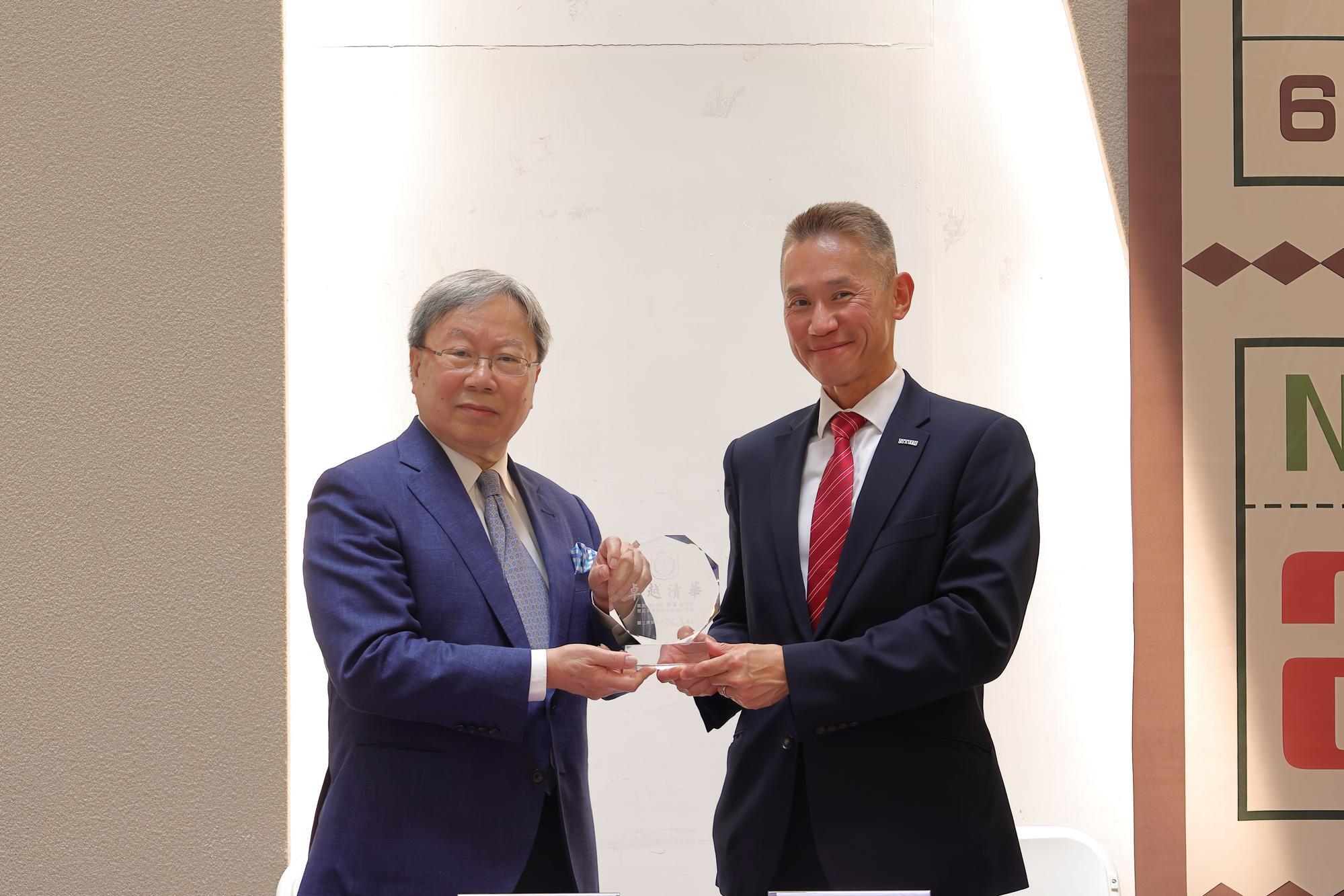
Kao (right) thanked Hsieh for his donation and presented him with the NTHU Excellence medal.
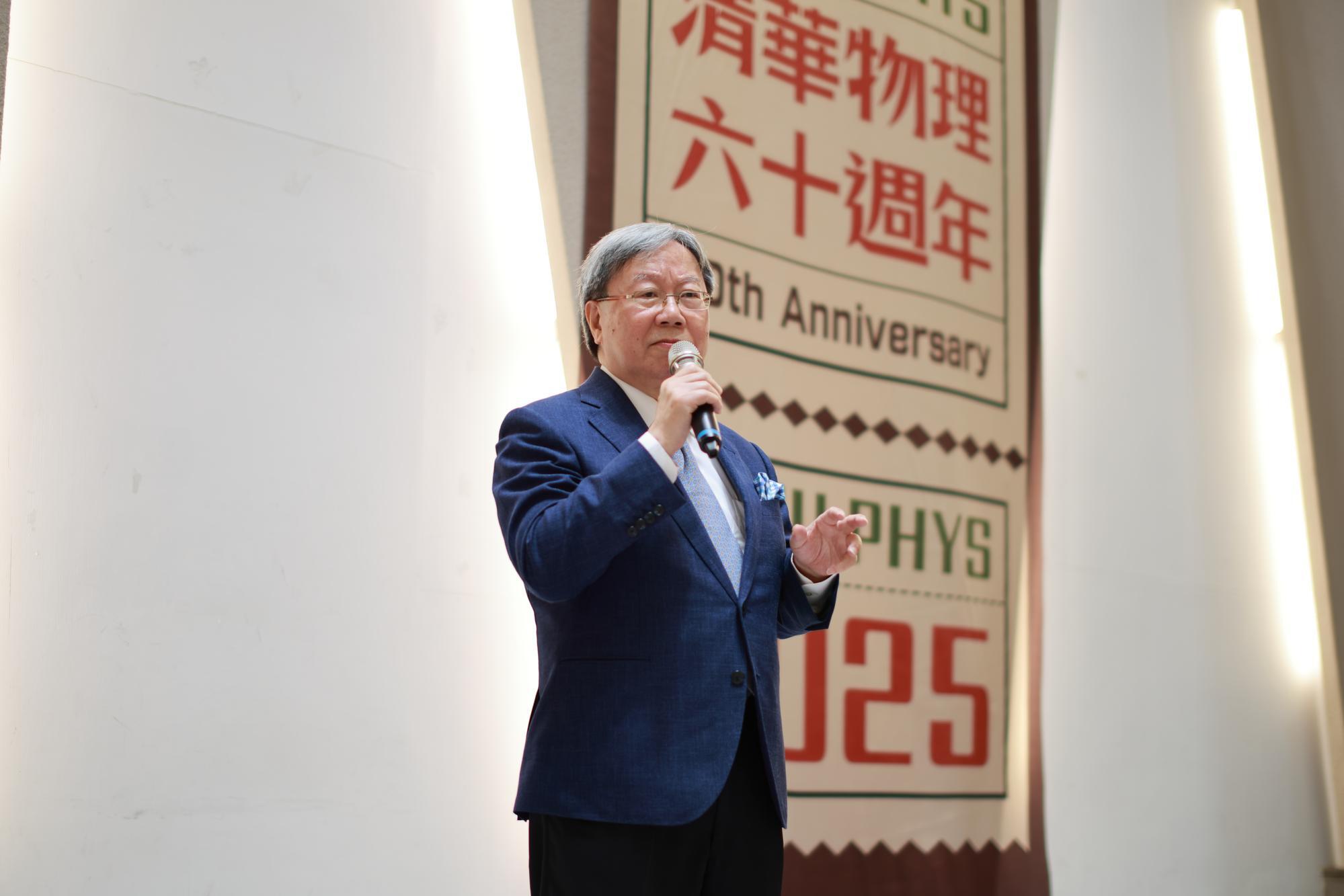
Hsieh's donation will be used to support development, research, and international cooperation in the Department of Physics.
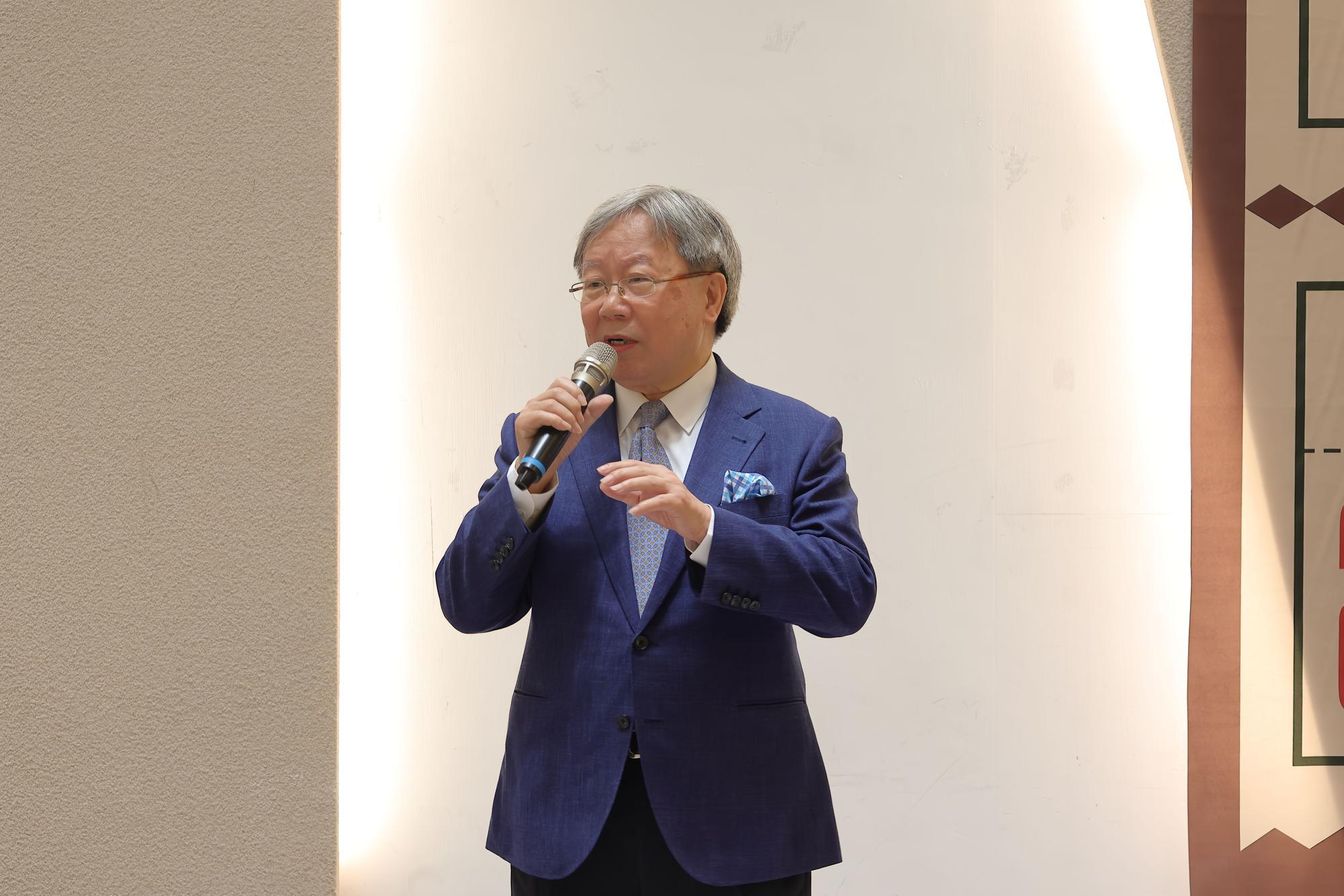
Hsieh's donation will be used to support development, research, and international cooperation in the Department of Physics.
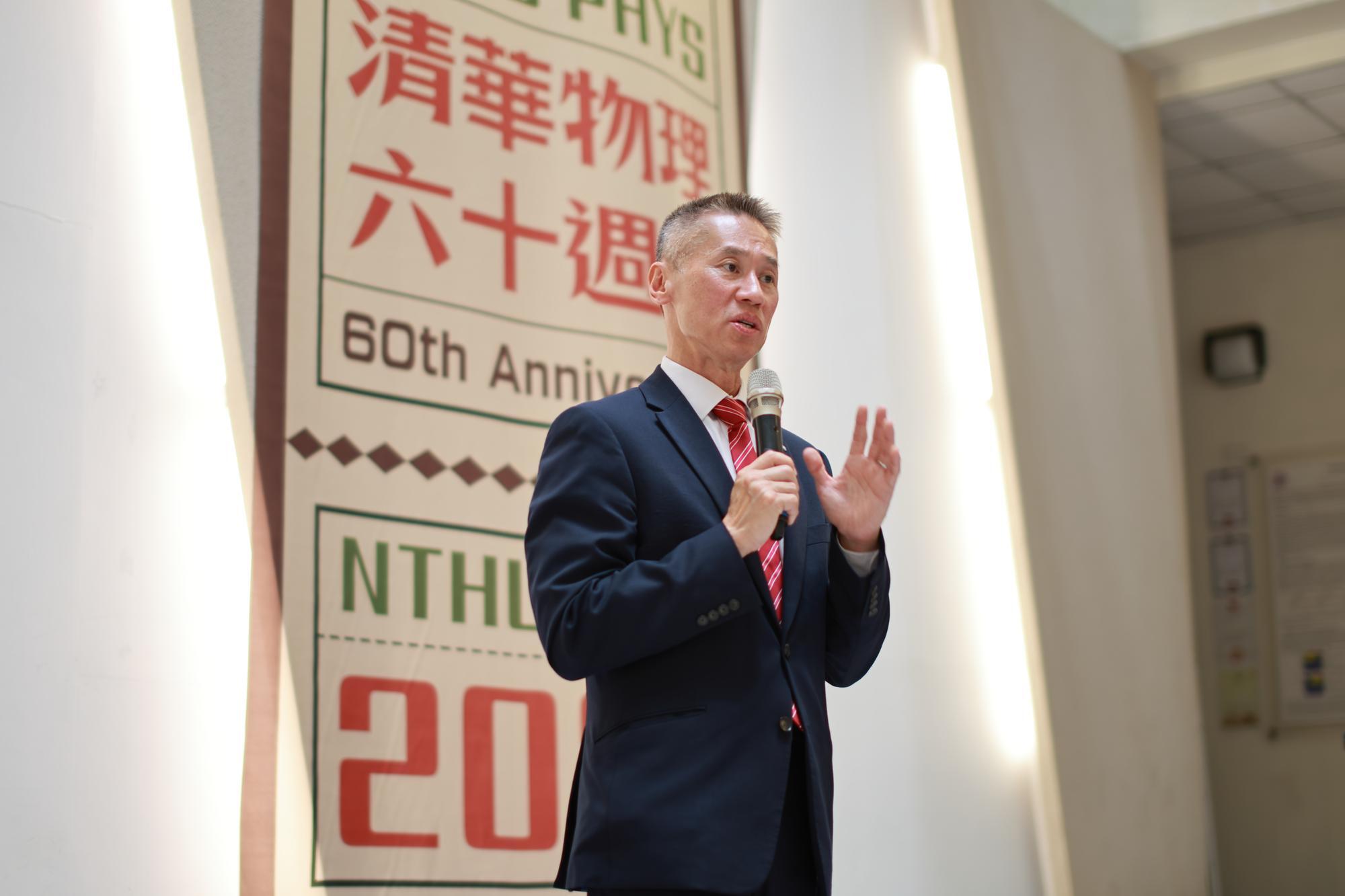
Kao stated that the fund will enhance the Department of Physics' global partnerships and talent cultivation initiatives.
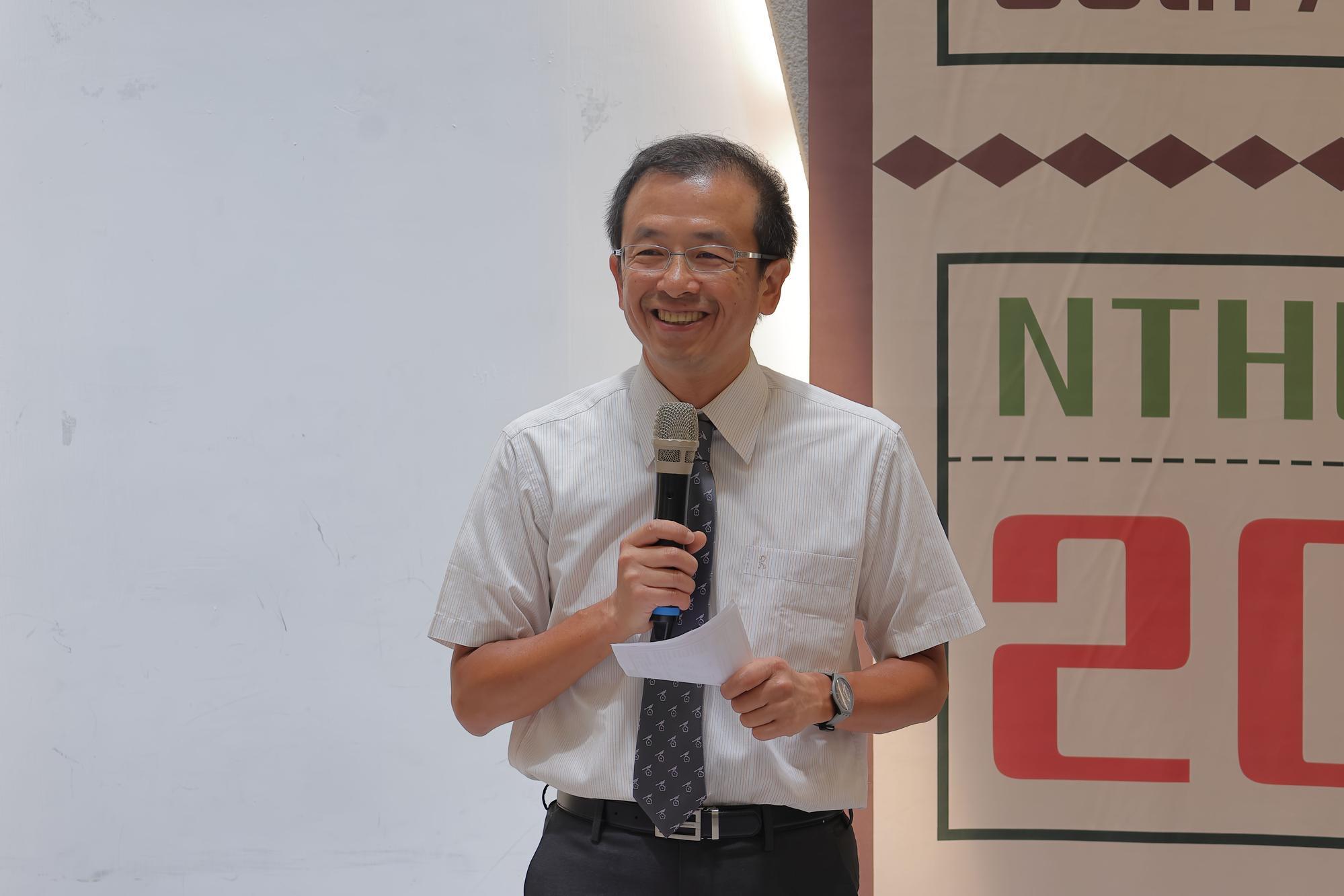
Liu said that the Fund will facilitate international exchange and enhance the Department of Physics' international profile.
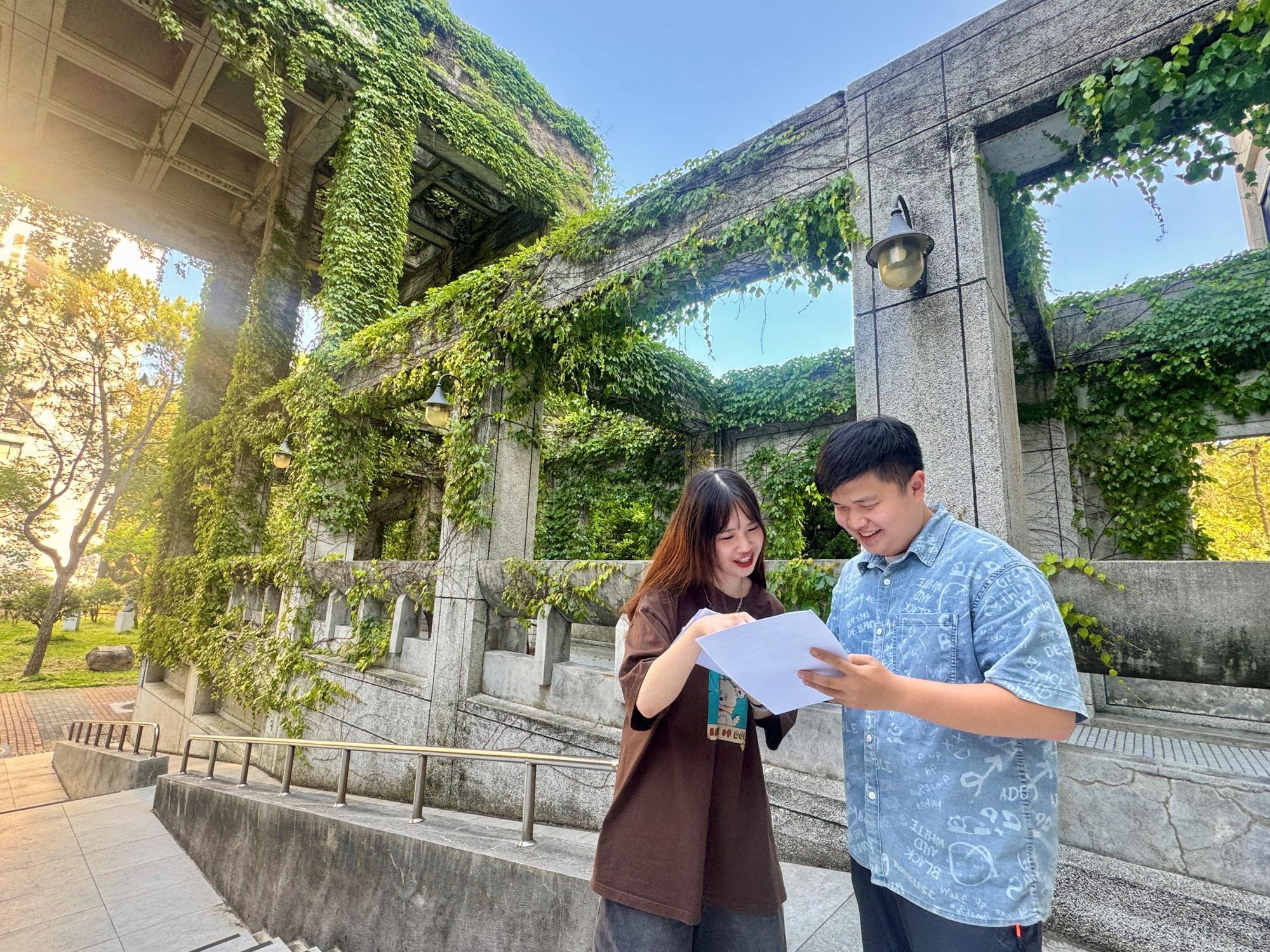
Yun-Zheng Lin (林芸箏) (left) and Hung-Yueh Huang (黃弘岳) expect the Excellence in Physics Development Fund to expand opportunities for international exchange.

The Excellence in Physics Development Fund is intended to strengthen research and international exchange.













